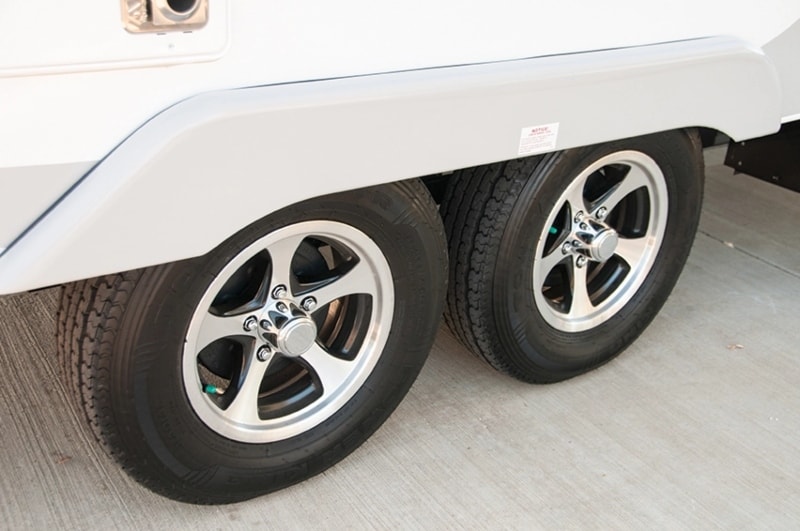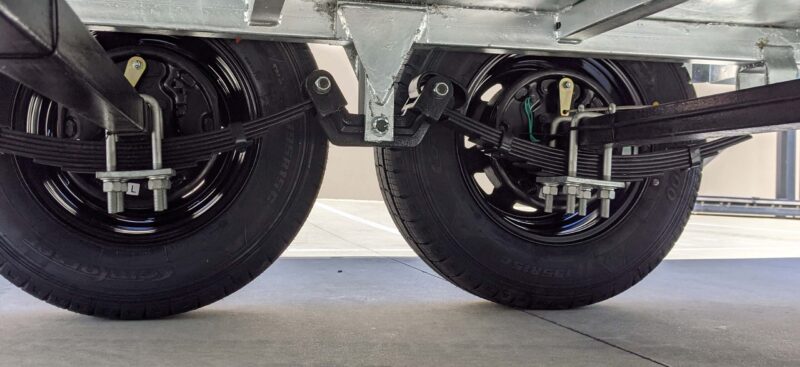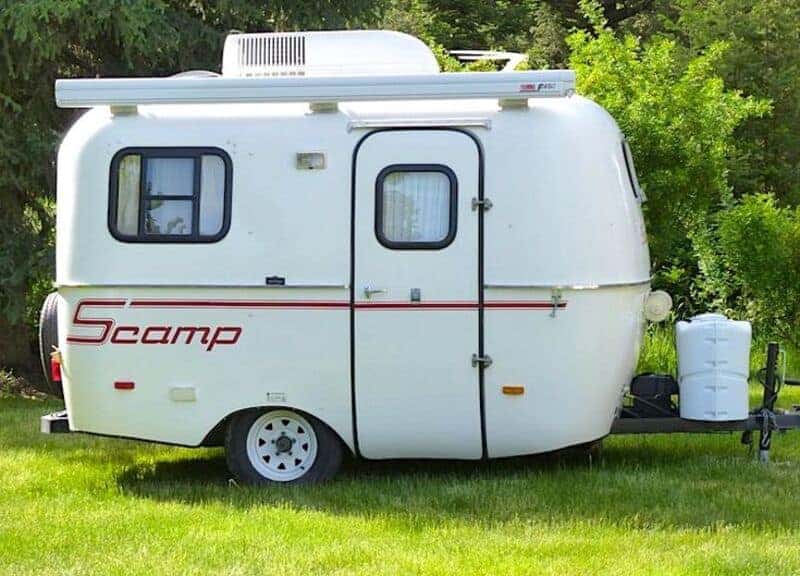If you’ve purchased new tires for your vehicle or travel trailer recently, you may have been given the option to use nitrogen instead of air. When filling travel trailer tires, nitrogen can be a money saver. Nitrogen can also be an unnecessary cost. For many of us, it can be hard to distinguish what is fact and what is a sales pitch.
If you’ve been on the internet lately, the topic of nitrogen in tires has a lot of skeptics and supporters. In this article, we’ll discuss the travel trailer tires nitrogen versus air debate and how each option benefits your travel trailer and vehicle.
The Difference Between Nitrogen and Air for Your Tires
The difference between nitrogen and air brings us back to high school science. The biggest difference between nitrogen and air is the size of the molecule. Nitrogen is a larger molecule than oxygen (air), so it doesn’t pass through the tire as easily.
When you put nitrogen in your tires, it is at least 93 percent pure nitrogen. Air is the same mix of gasses that you’ll find in the atmosphere. It’s 78 percent nitrogen and 21 percent oxygen. This more diverse blend of gasses makes regular air act differently than higher purity nitrogen.
Pros of Using Nitrogen to Fill Your Travel Trailer Tires
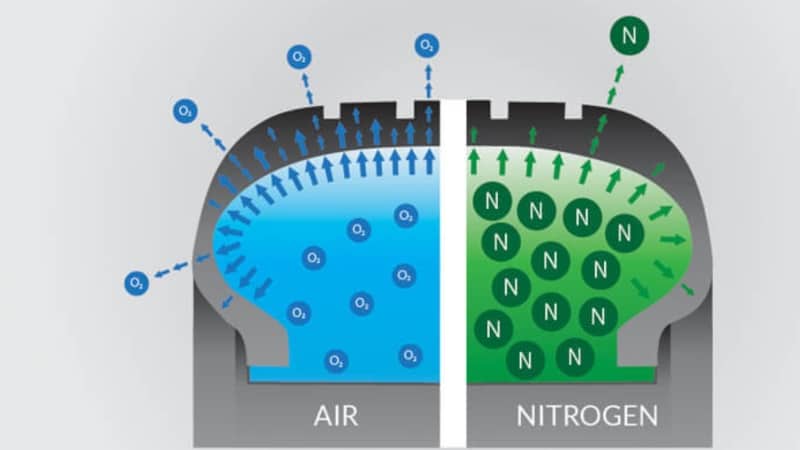
In travel trailer tires, nitrogen has plenty of pros that you may want to consider.
1. Nitrogen is More Stable
Because nitrogen is an inert gas, it tends to be less reactive in changing conditions, particularly swings in temperature.
2. It Keeps Water Vapor Out of Your Trailer Tires
The system used to put nitrogen in your tires is dry, so no water vapor passes into your tire. This keeps your wheels from rusting.
3. The Larger Molecule Prevents Leaking
The larger nitrogen molecule doesn’t pass through the microscopic gaps in tire rubber, so you don’t fill your tires as often.
4. Gain Better Fuel Economy
Because nitrogen is stable and doesn’t leave your tire as easily, your tires stay full longer. This means less work for your vehicle when pulling your travel trailer.
Cons of Using Nitrogen in Travel Trailer Tires
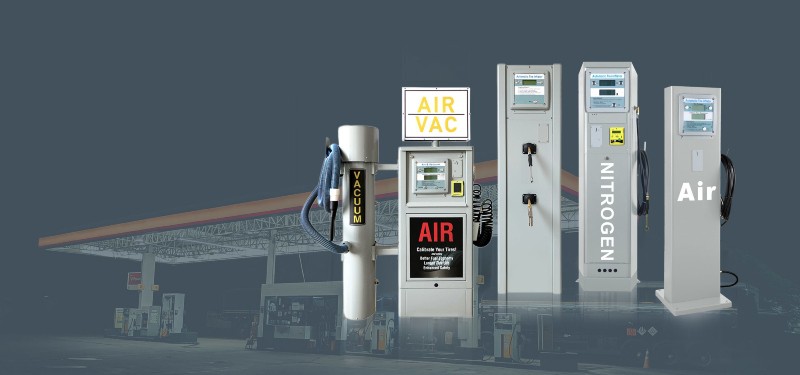
On the flip side, in travel trailer tires, nitrogen also has its disadvantages.
1. Nitrogen Isn’t That Common
You can go to any gas station or truck stop and find an air pump; nitrogen is usually only available at tire stores or repair facilities.
2. It Costs More to Fill Tires Up With Nitrogen
You will pay more for nitrogen in your tires.
3. Filling Up Travel Trailer Tires With Nitrogen Isn’t DIY
There are options for self-filling your tires with nitrogen, but they are limited and expensive.
Can You Mix Air and Nitrogen in Tires?
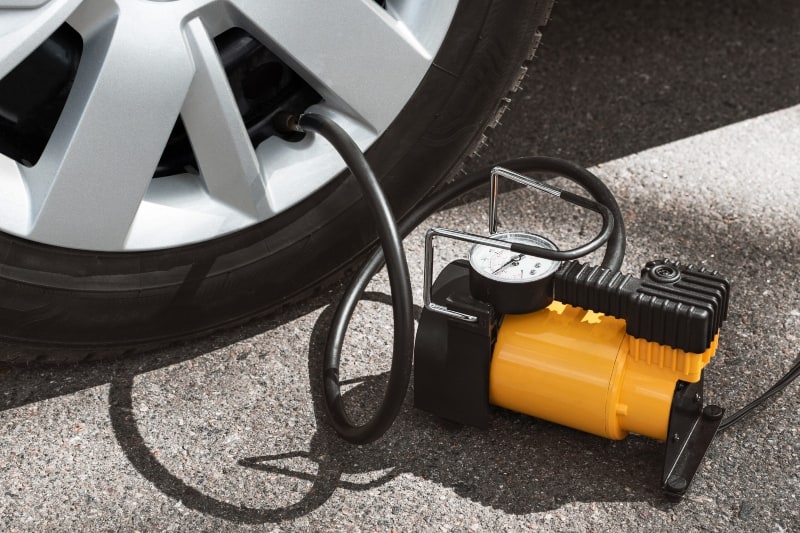
This isn’t really a matter of “can,” but rather, do you really want to? Because nitrogen is the largest component of air, mixing air with pure nitrogen is fine. However, mixing air with travel trailer tires’ nitrogen loses some benefits. If you are in a situation where you need to fill a low tire and you cannot find nitrogen, it is perfectly fine and safe to mix air and nitrogen.
Is Nitrogen or Air Better in Tires?
This is really where the debate about air and nitrogen rages. Theoretically, in travel trailer tires, nitrogen is better.
Nitrogen can greatly improve fuel economy and the longevity of your trailer’s wheels. Low tire pressure is one of the primary causes of poor fuel performance, which is a real drag (literally) when you are towing your travel trailer. Using nitrogen can save you money on fuel.
Nitrogen can also protect your travel trailer tires from rusting, which adds to the longevity of your trailer. It also allows you to spend time in colder places or travel in the winter without constantly worrying about tire pressure.
Are Tires Filled with Nitrogen Less Likely to Pop?
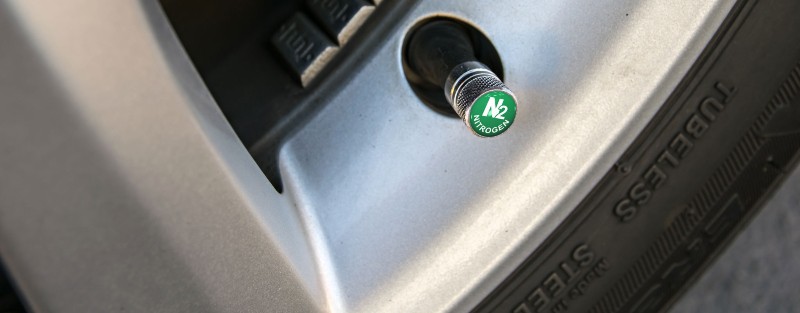
The idea that travel trailer tires with nitrogen are less likely to pop is one of the myths surrounding nitrogen in tires. There is a bit of science behind this myth: nitrogen doesn’t expand or contract as much as air. But this difference is very small when considering the percentage of nitrogen in air and “pure” nitrogen used for filling tires.
The reality is that neither air nor nitrogen contracts or expands enough to make your travel trailer tire pop. If your travel trailer tires pop, it’s more likely due to a weakness or damage to the travel trailer tire.
Another way to protect your travel trailer wheels is to maintain your wheel bearing by keeping them greased. Doing this decreases the pressure on your tires, making them less likely to tear or pop.
Does Nitrogen Perform Better in Tires in Cold Weather?
In travel trailer tires, nitrogen can have benefits if there are big swings in temperature. Air or nitrogen will perform equally if you are traveling from a warmer to a colder climate with your travel trailer.
The gradual change in temperature allows for a more moderate contraction of the air or nitrogen in your tires. However, if the temperature drops quickly, nitrogen will perform better. Because nitrogen is inert, it does not respond as dramatically to sudden drops in temperature.
Is It More Expensive to Put Nitrogen in Your Tires?
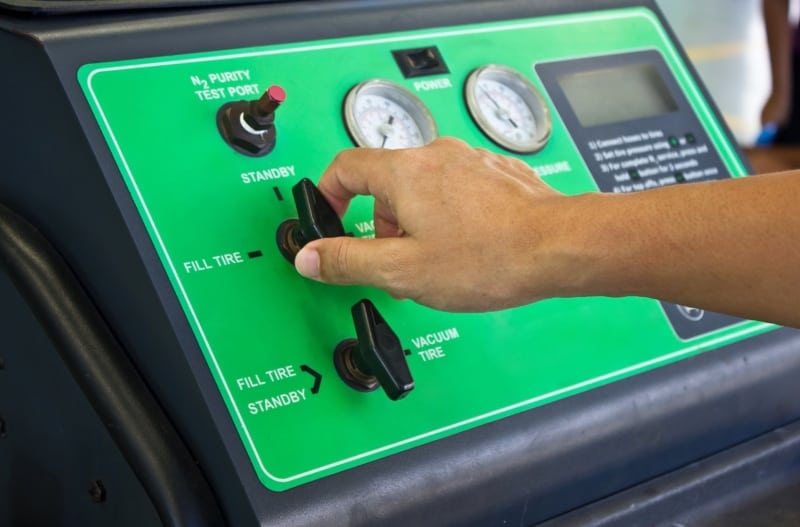
Nitrogen is more expensive. When filling travel trailer tires, nitrogen costs between $3 and $10 more per tire than filling with air. This means you really have to weigh the pros and cons of using nitrogen over air, especially if you have a large fifth wheel.
How Do You Fill Your Tires with Nitrogen?
A special tire inflation system concentrates nitrogen gas from the outside air to fill your travel trailer tires with nitrogen. These systems pull air through a special membrane that removes the nitrogen, compresses it, and then delivers it to your tires.
You can also buy a small can of nitrogen with a tire nozzle to use in emergencies, but these are expensive. They are also not large enough to use more than once.
Where Can You Find Nitrogen to Fill Your RV Tires?
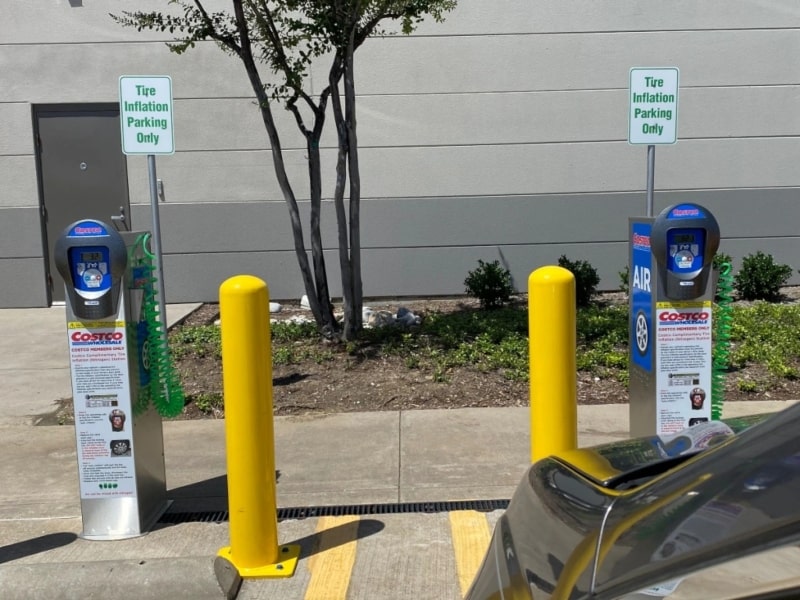
The most common place to find nitrogen for camper tires is at your local tire store or RV dealership. You’ll have difficulty finding a quarter-operated nitrogen pump at gas stations or truck stops. If you are committed to using nitrogen in your RV tires, you’ll have to do some research on your travels to find a location that uses nitrogen.
So, Should You Fill Your Travel Trailer Tires with Nitrogen?
As you can see, the debate about using nitrogen is confusing and doesn’t have a solid ‘yes’ or ‘no’ answer. For travel trailer tires, nitrogen can be a great option if you winter camp.
Nitrogen can also reduce the amount of time you spend filling your tires. However, if you don’t want to spend the extra money on nitrogen, there’s nothing wrong with using air.
Related Reading:
– Do RVs Have Spare Tires?
– How Often Should Travel Trailer Tires be Replaced?
About the Author:
Jason Gass is a full-time freelance writer and part-time RVer whose goal is to share great stories around a campfire with good friends.
When he’s not working, he spends most of his time camping, searching for the best breweries, and road-tripping in his teardrop trailer with his wife, daughter, and two dogs.


